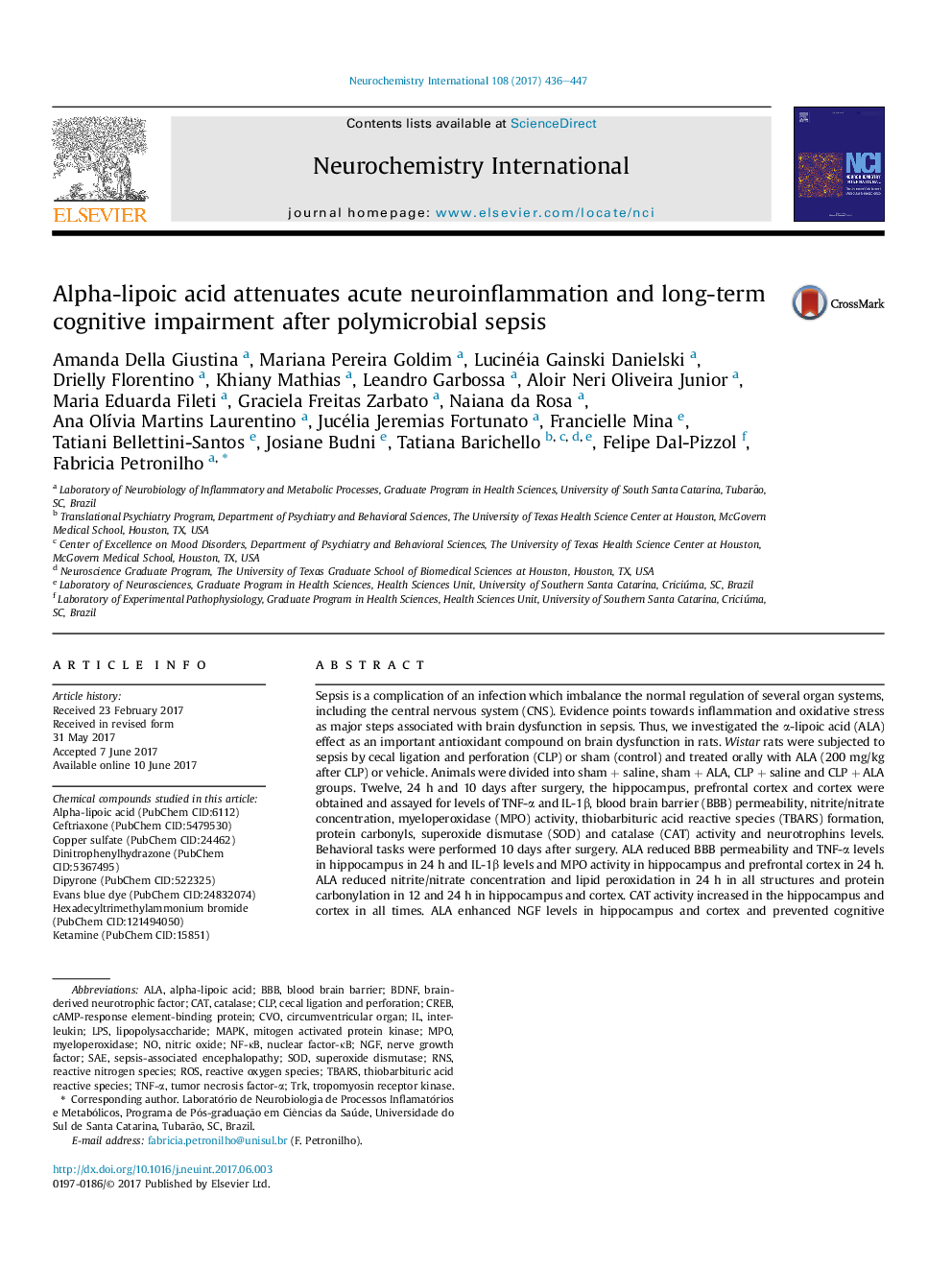| Article ID | Journal | Published Year | Pages | File Type |
|---|---|---|---|---|
| 5534734 | Neurochemistry International | 2017 | 12 Pages |
â¢Septic patients usually display long-term neurocognitive impairment.â¢Neuroprotective role of Alpha-lipoic acid (ALA) was tested in a model of sepsis.â¢ALA reduces markers of inflammation and oxidative stress 24 h after sepsis.â¢ALA increases NGF levels in the hippocampus 10 days after sepsis.â¢ALA ameliorates habituation and recognition memories 10 days after sepsis.
Sepsis is a complication of an infection which imbalance the normal regulation of several organ systems, including the central nervous system (CNS). Evidence points towards inflammation and oxidative stress as major steps associated with brain dysfunction in sepsis. Thus, we investigated the α-lipoic acid (ALA) effect as an important antioxidant compound on brain dysfunction in rats. Wistar rats were subjected to sepsis by cecal ligation and perforation (CLP) or sham (control) and treated orally with ALA (200 mg/kg after CLP) or vehicle. Animals were divided into sham + saline, sham + ALA, CLP + saline and CLP + ALA groups. Twelve, 24 h and 10 days after surgery, the hippocampus, prefrontal cortex and cortex were obtained and assayed for levels of TNF-α and IL-1β, blood brain barrier (BBB) permeability, nitrite/nitrate concentration, myeloperoxidase (MPO) activity, thiobarbituric acid reactive species (TBARS) formation, protein carbonyls, superoxide dismutase (SOD) and catalase (CAT) activity and neurotrophins levels. Behavioral tasks were performed 10 days after surgery. ALA reduced BBB permeability and TNF-α levels in hippocampus in 24 h and IL-1β levels and MPO activity in hippocampus and prefrontal cortex in 24 h. ALA reduced nitrite/nitrate concentration and lipid peroxidation in 24 h in all structures and protein carbonylation in 12 and 24 h in hippocampus and cortex. CAT activity increased in the hippocampus and cortex in all times. ALA enhanced NGF levels in hippocampus and cortex and prevented cognitive impairment. Our data demonstrates that ALA reduces the consequences of polymicrobial sepsis in rats by decreasing inflammatory and oxidative stress parameters in the brain.
